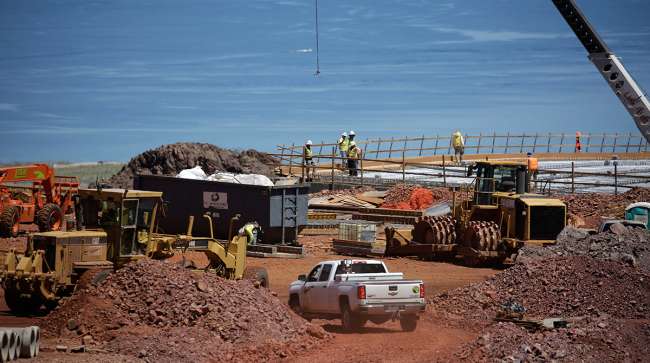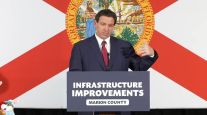Senior Reporter
Coalitions Ramp Up Calls on Social Media for Highway Trust Fund Fix

[Stay on top of transportation news: Get TTNews in your inbox.]
Congressional transportation leaders are the focus of a new social media campaign designed to draw attention to infrastructure funding priorities nationwide.
The Transportation Construction Coalition and Americans for Transportation Mobility began targeting members of the congressional tax-writing committees this summer to remind them of the Highway Trust Fund’s looming insolvency.
The Ways and Means panel in the House and Finance Committee in the Senate has jurisdiction over the trust fund, an account that relies on dwindling revenue from the federal fuel tax.
“Our national transportation infrastructure is severely underfunded, which is crippling our economy and endangering lives. The time for Congress to fix this is now — ask [name of tax-writing policymaker] to start work today to get our nation moving in the right direction again,” is the message organizers of the online campaign are providing the public.
Ad Campaign Targets Key Lawmakers and Highlights Urgent Need for Investment to Modernize #Infrastructure https://t.co/5BlsJpvaae @TheTCC @ATMCoalition @USChamber pic.twitter.com/aYp901N4ho — ARTBA (@ARTBA) June 26, 2019
Co-chaired by the American Road and Transportation Builders Association and the Associated General Contractors of America, the Transportation Construction Coalition includes 31 associations and labor unions. The U.S. Chamber of Commerce established Americans for Transportation Mobility.
“Members of Congress and President [Donald] Trump have the historic opportunity to deliver improvements the American people want by acting now to ensure the long-term viability of the Highway Trust Fund, the source, on average, of more than 50% of highway and bridge capital improvements made by state governments annually. Business and labor have joined together to support solutions to modernize infrastructure; it is time for Congress to do the same,” the groups wrote in an editorial in June.
Under the heading, “Let’s Rebuild America’s Infrastructure,” the chamber includes on its website a letter the public may e-mail to members of Congress to urge legislative action on the matter.
“Our elected leaders have spoken about prioritizing the United States’ transportation system, but we need to see these promises become reality,” according to an excerpt of the letter. “The United States needs new and sustainable revenue generators to modernize America’s transportation system or else the Highway Trust Fund will run out of money and regional projects will be affected. Ask President Trump and the new Congress to work together to pass long-term funding and financing solutions that will help safeguard a better tomorrow for America.”

During this session of Congress, the tax-writing committees have not considered legislation related to the trust fund. Trump and top Democrats had discussed infrastructure policy until their talks at the White House broke down in May.
Last month, Transportation Secretary Elaine Chao emphasized that a long-term reauthorization of highway policy would benefit the advancement of big-ticket infrastructure projects nationwide.
“The general pattern is in fact to just have extensions, not full reauthorization. But clearly, the certainty of having a longer time frame is very important to those who are involved in infrastructure,” Chao said at the Heritage Foundation think tank. “State and local governments, you know, if they know they’re going to have this money for five years rather than six months, they can actually plan for the future. So a longer-term horizon is better.”

Chao
The FAST Act five-year highway law expires in the fall of 2020. Transportation policymakers on Capitol Hill have signaled the possibility of considering a FAST Act reauthorization prior to August. A funding approach for such reauthorizing legislation has yet to be announced by party leaders.
The trust fund’s insolvency is projected to occur in less than two years, according to analysts. The 24.4-cents-per-gallon diesel tax and 18.4-cents-per-gallon gas tax have remained unchanged since 1993. Citing uncertainty with the distribution of federal funds, about two-thirds of the states approved raising their gas and diesel taxes in recent years.



